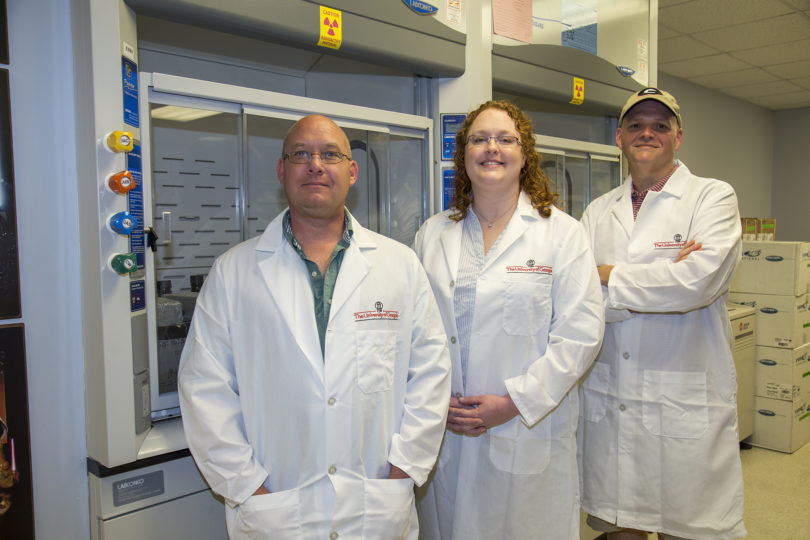Researchers in the University of Georgia’s College of Veterinary Medicine have been awarded a five-year, $3.2 million grant by the National Institutes of Health to develop a vaccine platform that will optimize vaccine development and administration.
UGA Foundation Distinguished Professor M. Stephen Trent, along with associate professor Jeff Hogan and postdoctoral fellow Shawn Zimmerman, have developed the Surface Antigen/Adjuvant Vaccine Engineering, or SAAVE, platform that engineers the surface of bacterium to be a vaccine.
This will allow a vaccine to be administered as an oral probiotic, which will improve efficiencies and create a versatile, interchangeable platform designed to help fight multiple infectious diseases.
The grant, funded by the National Institute of Allergy and Infectious Diseases, will allow for the full development and expansion of the SAAVE platform, building on Trent’s research with engineered lipopolysaccharides (LPS) as adjuvants, a key part of making vaccines more effective.
“The most important factors in vaccine development and administration are vaccine efficacy, safety, production time and cost,” said Trent. “The SAAVE platform will help us be able to offer vaccines to a population that can be delivered quickly, in a non-invasive manner, and at a lower cost. It has the potential to make a very large impact in regions of world where the costs of vaccine administration are prohibitive.”
Over the next five years the team will work to pair a variety of antigens from different disease-causing organisms with the adjuvant MPL, an engineered form of LPS. They are currently working on a vaccine to protect against the influenza virus and have made progress on a vaccine to fight cholera.
“We should never forget that vaccination is one of the greatest public health interventions of all time and it is critical for maintaining the well-being of the human population,” Trent said.








